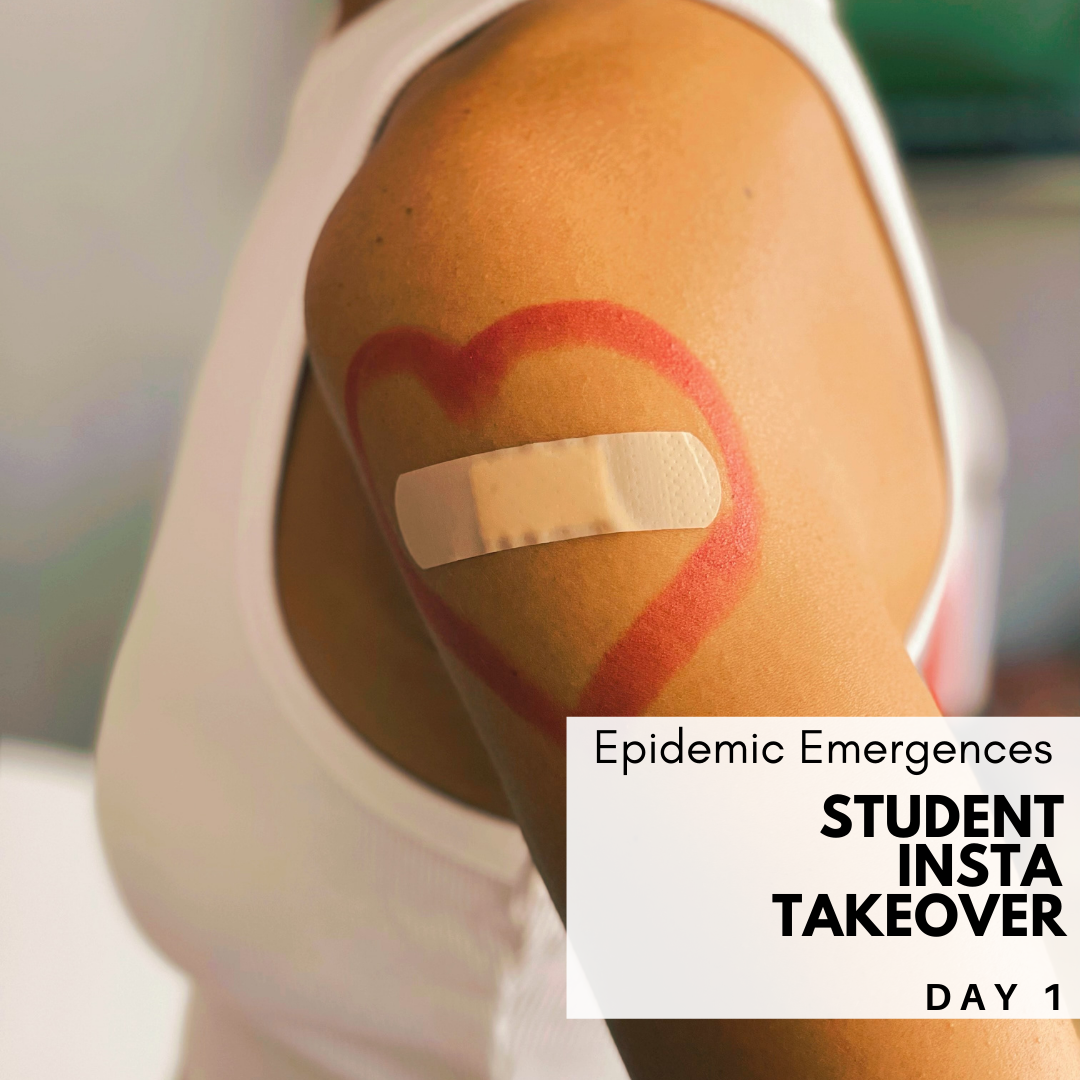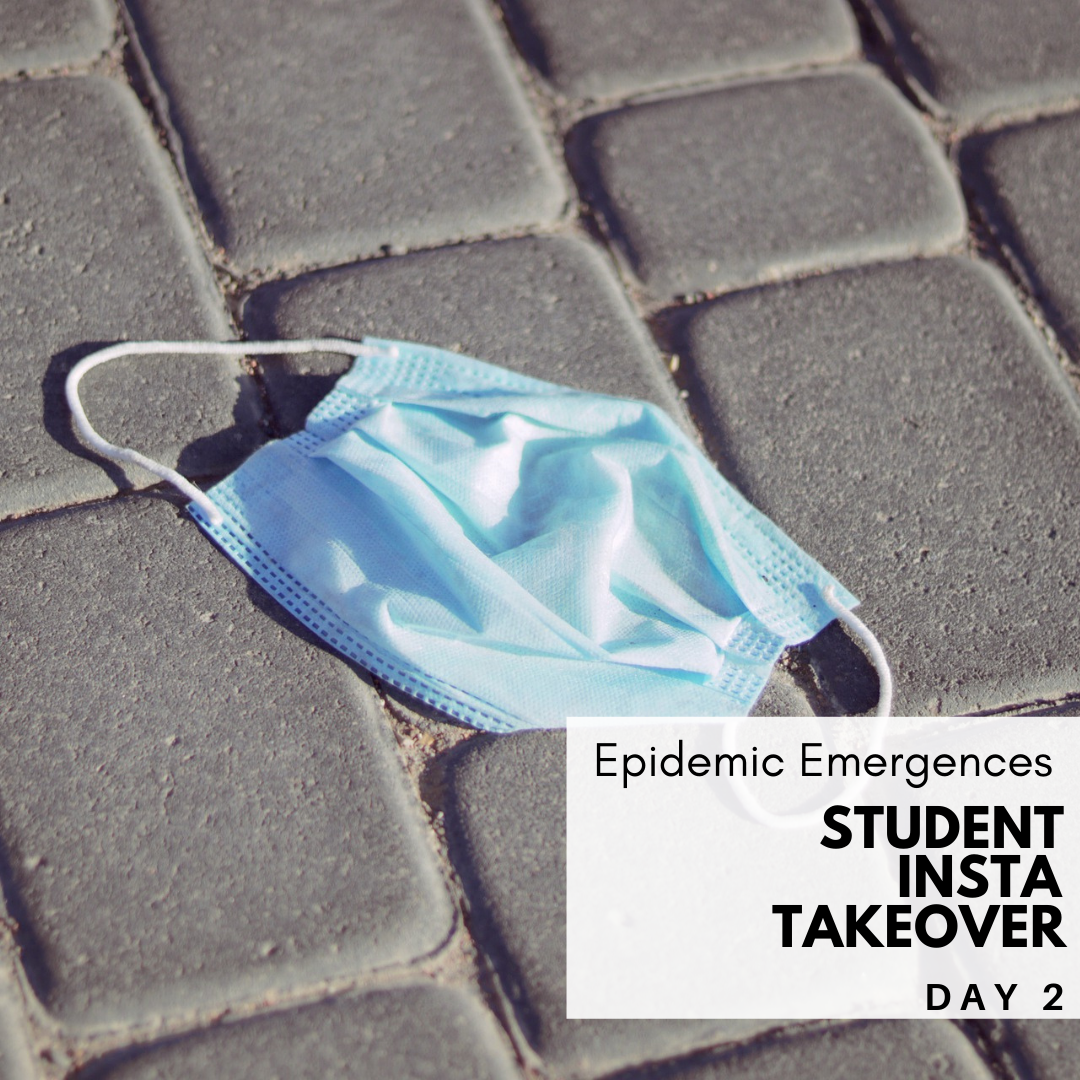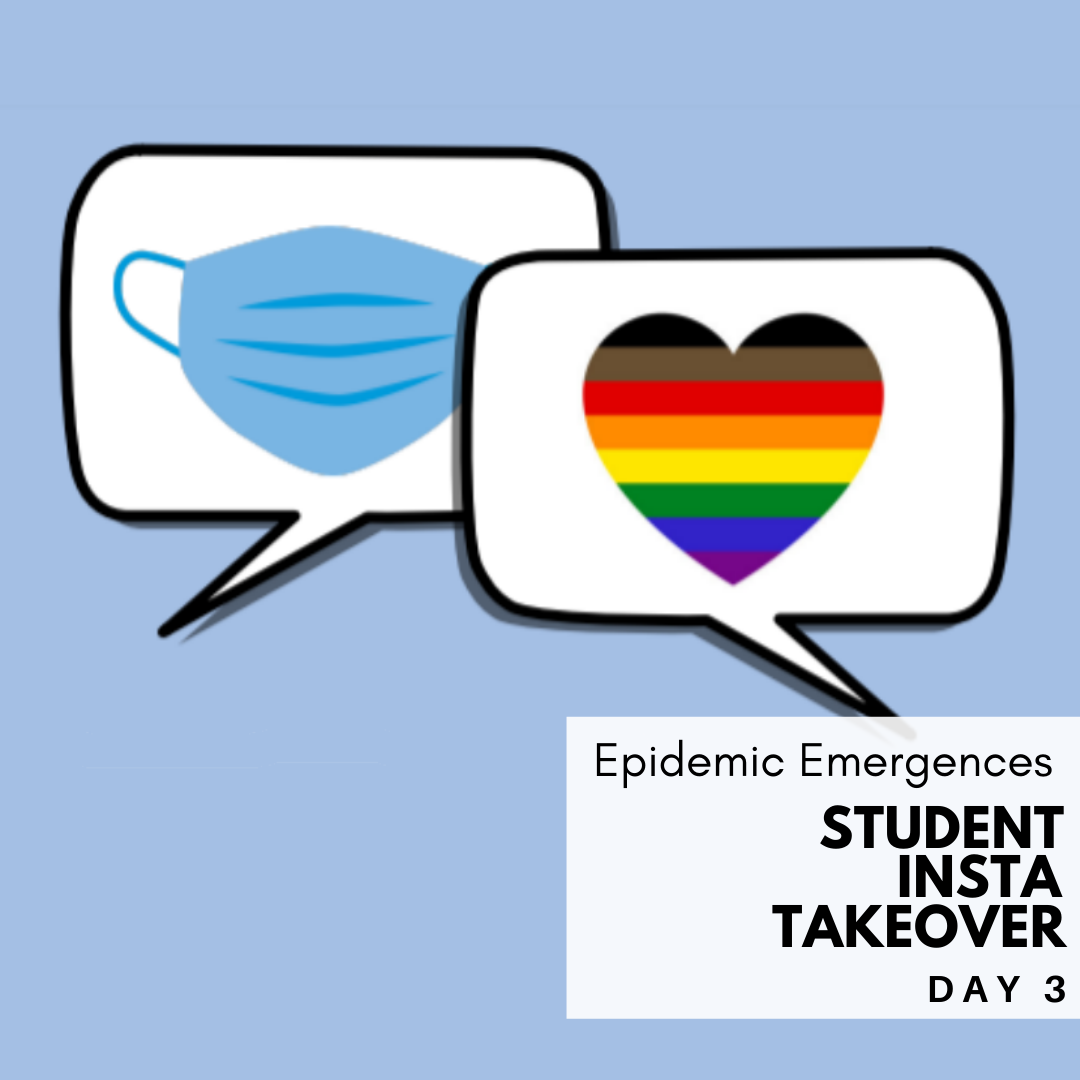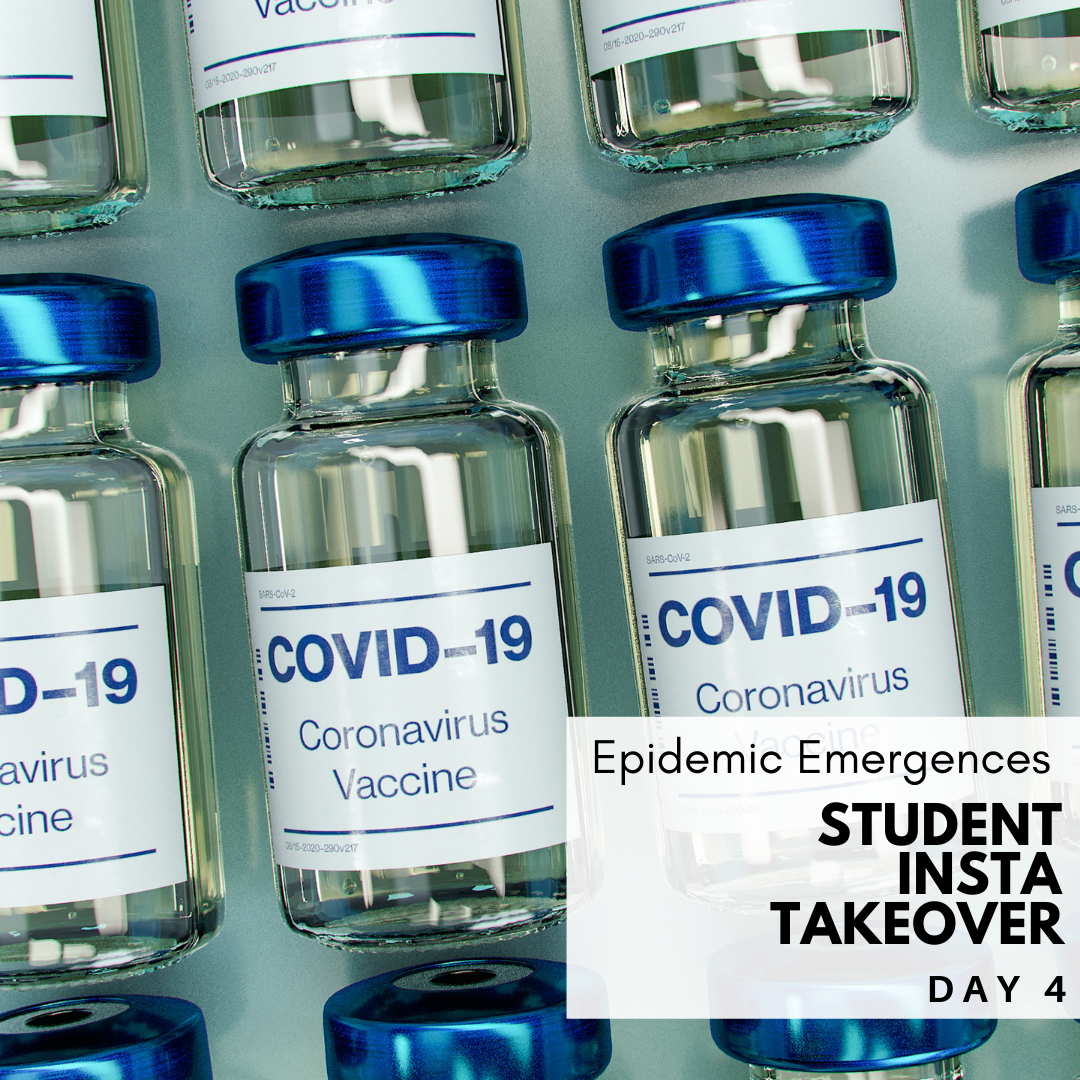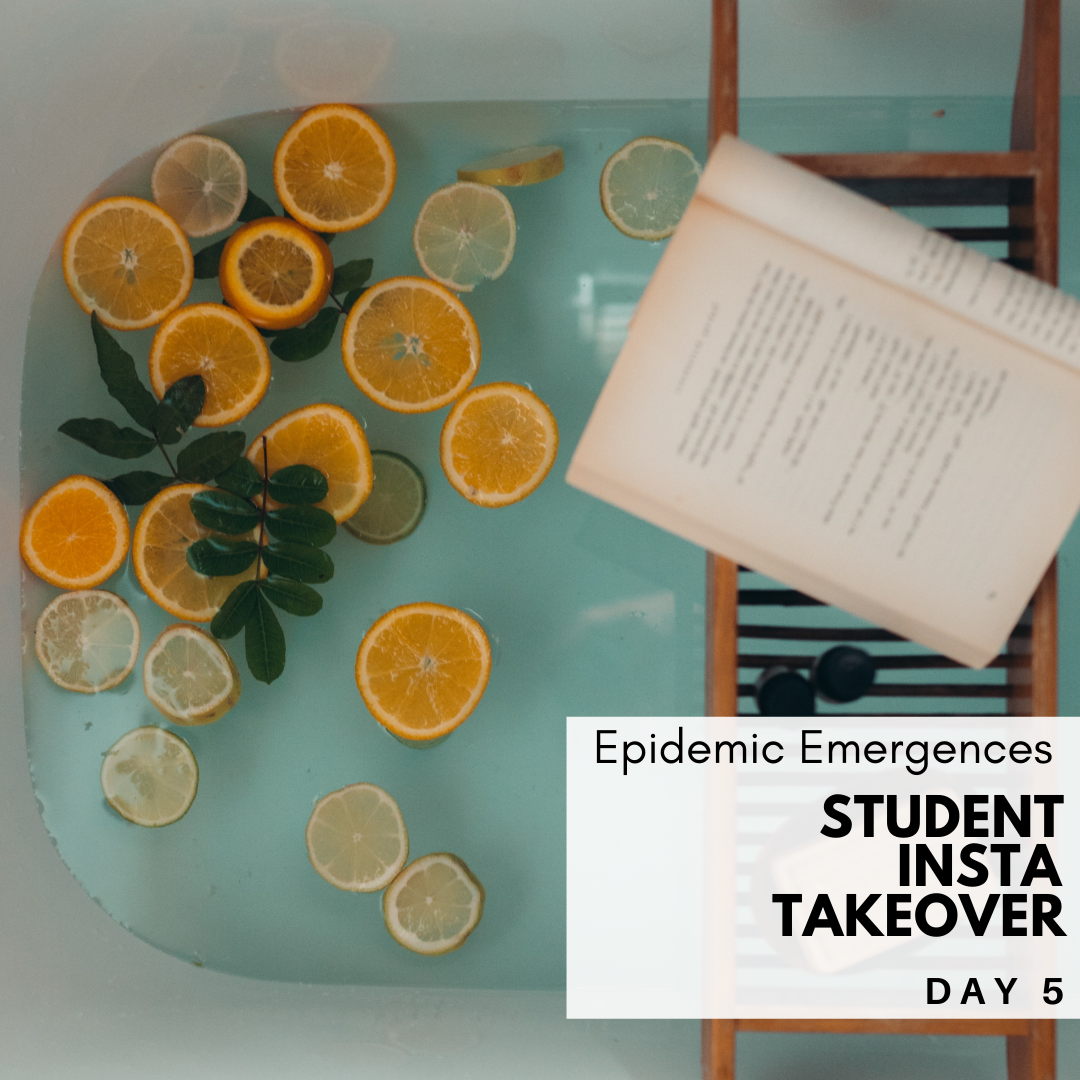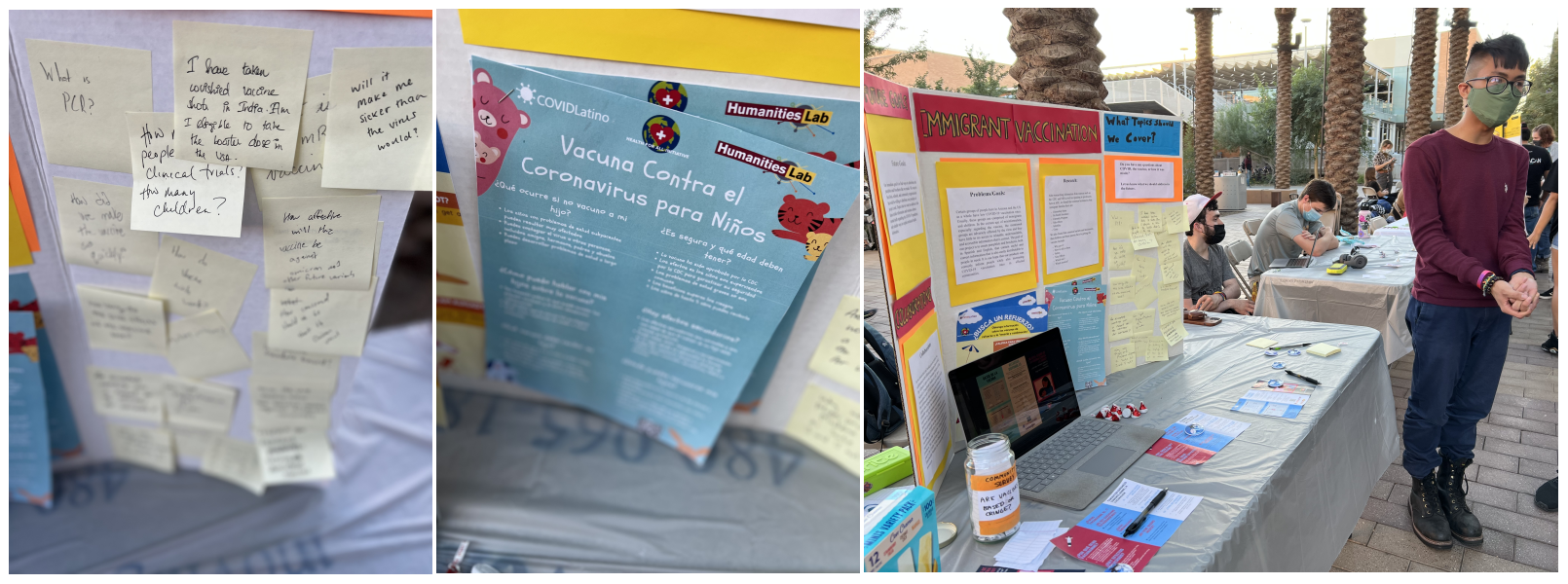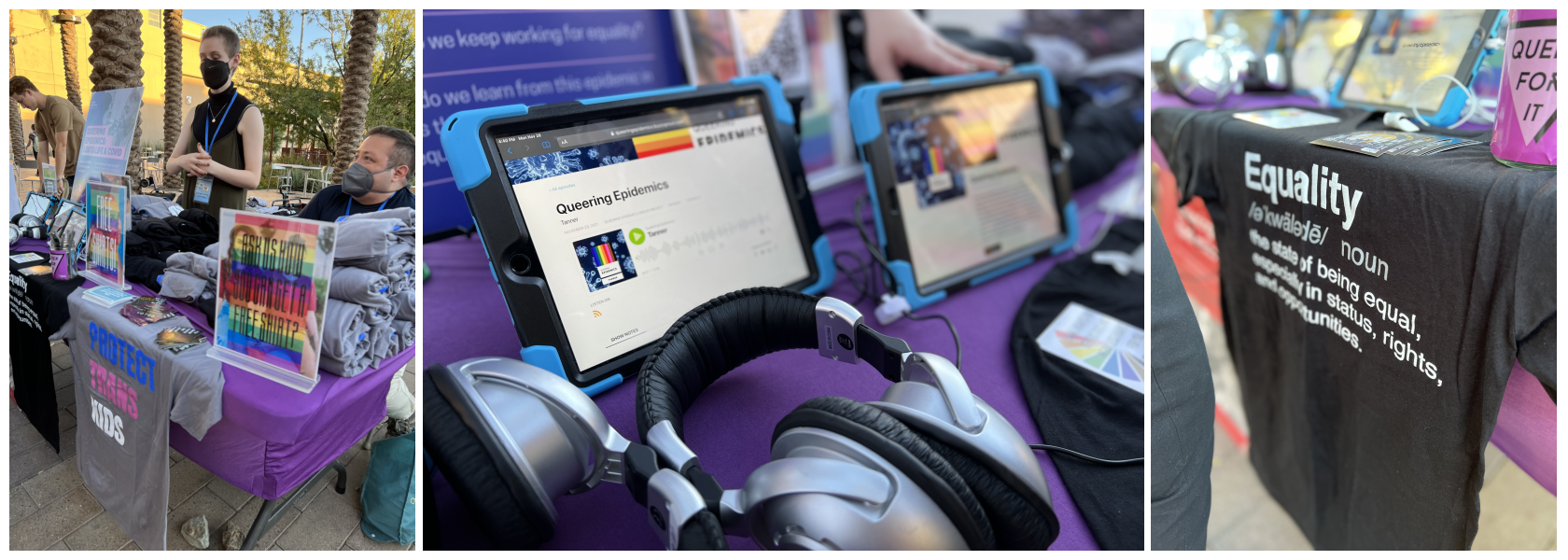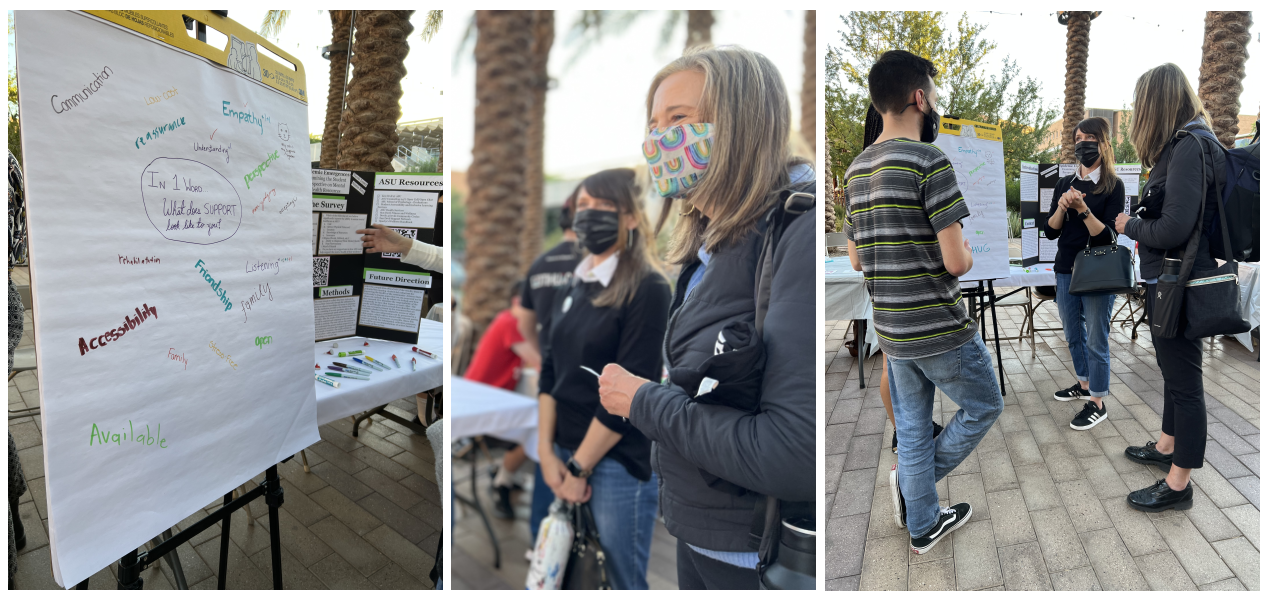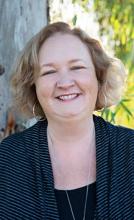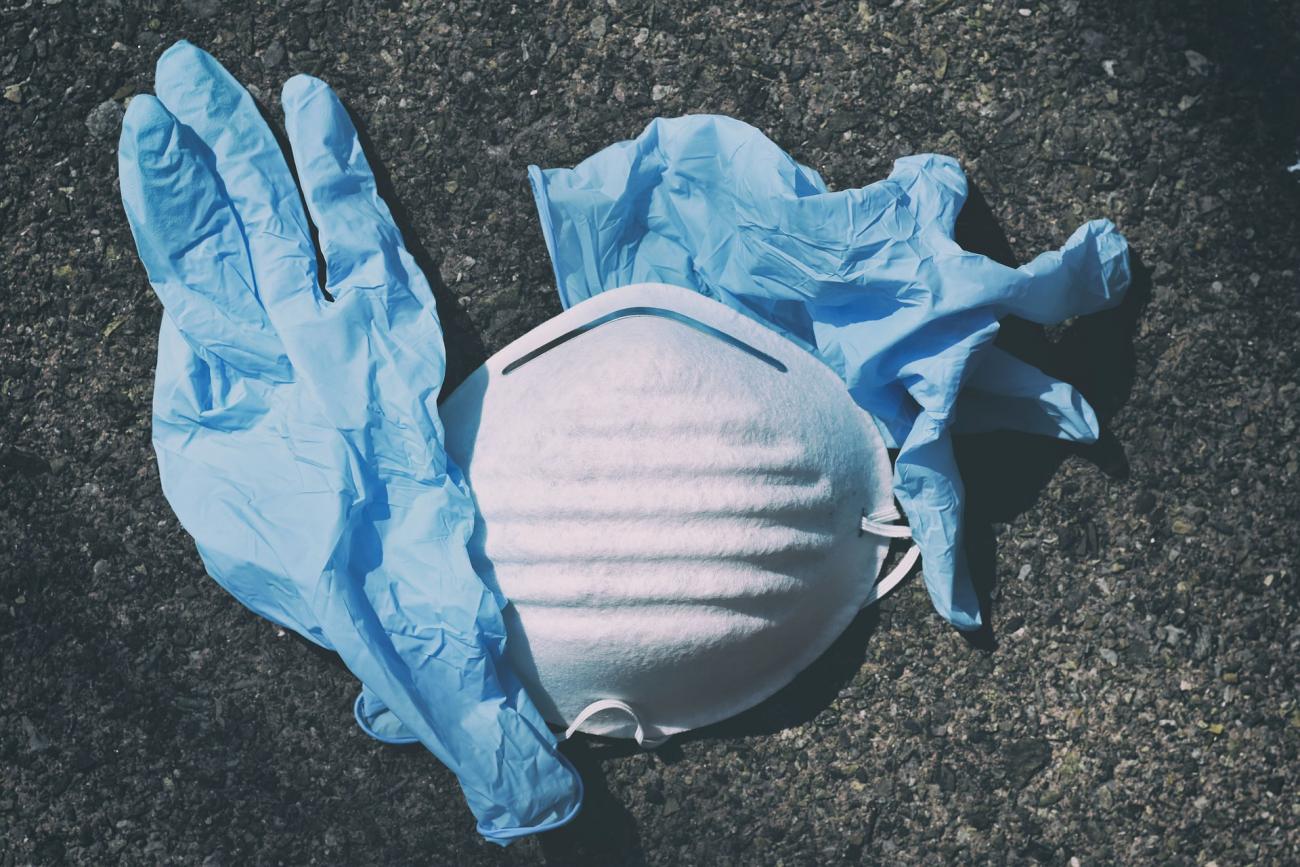
Epidemic Emergences Impact Outcomes
Epidemic Emergences
During the Fall 2021 semester, students in the Epidemic Emergences Lab leveraged a myriad of academic fields as they analyzed cultural responses to past epidemics and the COVID-19 pandemic. Lab students formed five teams that each focused on a different intersection of COVID-19 and a field of research: the health humanities, the environment, critical race theory, sexuality, and mental health. Later in the semester, the entire Epidemic Emergences Lab team arranged a promotional campaign on the Humanities Lab Instagram to draw attention to their final impact outcome event. The event took place in the outdoor space in front of ASU's Student Pavilion where the teams presented a collection of innovative and actualized interventions to the public.
Student Instagram Takeover
From November 24th to the 29th, students took over the Humanities Lab Instagram page to promote their COVID-related intersectional interventions that were later presented at the Epidemic Emergences event outside of ASU's Student Pavilion. See their posts below.
Impact Outcome Event
Subsequent to the student's Humanities Lab Instagram takeover, the Lab team held an impact outcome tabling event outside the Student Pavilion in which they presented their cultural interventions that explored various social issues that arose during the COVID-19 pandemic. See each intervention below.
Barriers to COVID-19 Vaccination
Having learned about the realities of vaccine hesitancy in marginalized communities through their lab research, including issues faced by those who are undocumented, this team designed eye-catching multilingual pamphlets that addressed common concerns among these communities. They invited attendees and passersby to share additional questions regarding vaccination that could be answered in their pamphlets in the hopes of further refining their intervention. View the details behind their intervention here.
Mask on the Floor No More!
This team approached the issue of pervasive face mask litter by addressing how face coverings become pollution, how they can be repurposed, and how society can use face masks more responsibly.
Queering Epidemics
In a partnership with Equality Arizona, these students reached out to ASU's queer community to assemble a digital archive of interviews, artwork, and writings documenting the LGBTQ+ COVID-19 experience. At their table, they presented their archive to passersby and gathered testimonies from the public. Listen to their episodes here.
Background Noise: The Untold Stories of COVID
This team produced a podcast detailing the impacts of the pandemic on everyday healthcare, through thoughtful interviews with a variety of healthcare professionals. The podcast addresses topics such as telehealth and new COVID-related medical practices. During the Epidemic Emergences impact outcome event the team hosted a table where visitors were able to listen to the podcast, scan a QR code for a future listen and could ask questions about their process and what they learned through this experience.
Sparky's Wellness Initiative
Disillusioned by the stress and isolation of college during the COVID-19 pandemic, this team gathered perspectives and personal strategies on maintaining mental wellness from the public while spreading awareness of ASU's mental health resources.
Grants
In order to earn the funds needed to initiate these projects, our Epidemic Emergences students applied for and received the following grants:
– Jhanz Marco Garcia, Cyrus Eapen, Anthony Un, and Darwin Cruz were awarded and Amplifier Mini-Grant for their Barriers to COVID-19 Vaccination project.
Reflections from the Faculty
Regarding the Epidemic Emergences course, professor Cora Fox shares,
“I have never taught a course that gave me more insight into the lives of ASU students and their communities. Using the laboratory model and allowing the students to influence the agenda for the course--asking them what mattered to them as people living through and emerging from the Covid-19 pandemic--we opened up new possibilities for collaborative exploration. Drawing on the life experiences and academic expertise of our students from their many different disciplines, our embedded librarian, and our own as team teachers allowed us to transcended the usual boundaries of the university. Some of the themes of the course were expected and planned—developing awareness of the ways narratives shape experiences of epidemic diseases, the ethical questions surrounding healthcare access, and the need for adequate and equitable public health interventions, for instance--but students directed us toward other themes as well: exploring the inadequacy and structural inequities built into mental health resources in the US, the particular experiences of LGBTQ+ people during this time of cultural challenge and change, questions of media and misinformation in the internet age, the experiences of various ethnic and racial groups with vaccine hesitancy, to name a few. Our discussions and project work exemplified the ways the epidemic has been experienced as highly personal and individual and at the same time so very much a matter of culture and social class. Many students expressed to us how much the immediacy of our conversations helped them understand and negotiate their own epidemic emergences as they lived through this, and particularly the ways the course gave them structural awareness of the crises confronting medical care in the US. We know that this kind of ripple effect into the community happens with all great courses, but we don’t always get to see it so clearly or profoundly as we did this semester.”
Note: The views presented or expressed on this page are those of the speaker or author only and do not necessarily represent the views of Arizona State University.
